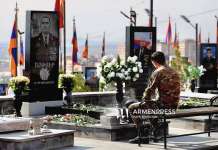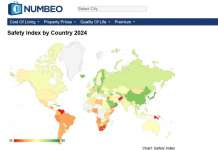Armenia and its inhabitants have a respectful attitude to cultures and languages, Council of Europe’s newly released report says.
Armenia’s legislation and regulations comply with the country’s obligations in promoting the use of regional and minority languages in public life. However, more needs to be done to raise awareness of the country’s minority languages and cultures, to address the problem of the lack of funds, and to change the attitude of the authorities to protecting the languages.
These are the key findings of the new report published today that looks at how Armenia implements its undertakings under the European Charter for Regional and Minority languages. The report covers the period up to the end of May 2016, and places special attention on the measures taken to promote the five languages that Armenia recognized as minority ones and protects under the Charter: Assyrian, Greek, Kurdish, Russian and Yezidi.
On the positive side, a number of measures were introduced to promote these languages; and progress has been noted in the publication of school textbooks. The situation of Russian does not give rise to any concerns: this is the only minority language in which bilingual education is provided at various educational levels.
In contrast, the situation of Greek does not comply with the obligations Armenia took upon itself. There is a danger that Pontic Greek will disappear as a minority language in Armenia. Resolute action by the public authorities is essential to support the Greek language.
There are certain shortcomings in the promotion of Assyrian, Kurdish and Yezidi languages. These three minority languages have only a marginal presence in the public and private media, despite favorable legal provisions. There is a lack of well-trained teachers. The shortcomings are primarily due to the lack of funds which particularly affects teaching and the media.
Support given to minority languages in Armenia, the report says, is often limited to folklore festivals or the provision of premises for various events initiated by the minorities themselves. The Council of Europe experts note a tendency on the part of the Armenian authorities to assign responsibility for implementation of the Charter to the local authorities and the national minority communities, and use this as justification for the lack of proactive measures. The passive attitude of the authorities gives the impression that the protection of the minority languages is the responsibility of the minorities themselves. However, the Charter places obligations on the authorities, and not the minorities, to promote and protect minority languages, the experts stress.
Armenia has joined the Charter for Regional and Minority Languages in May 2002.














